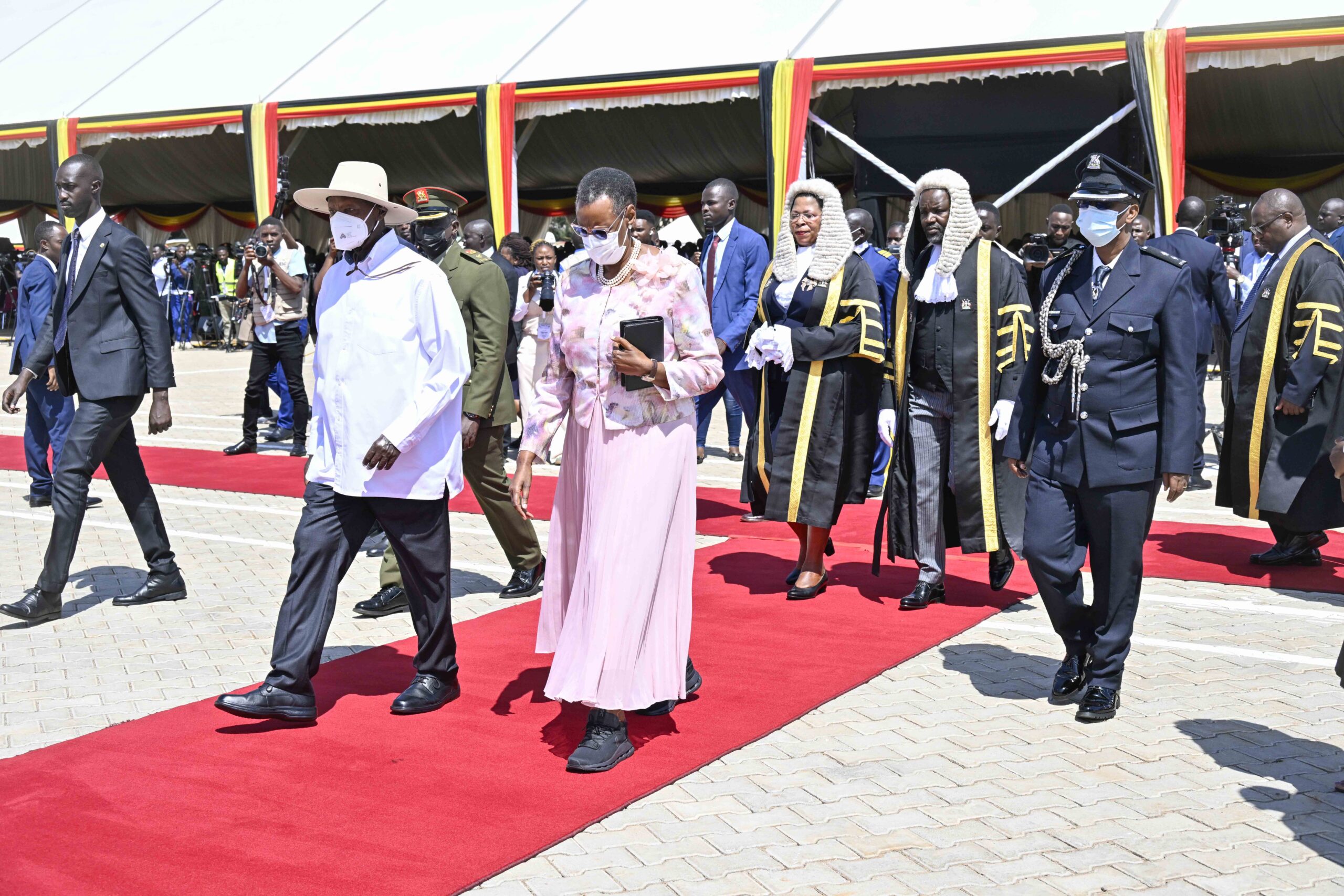
KOLOLO.
President Museveni has sharply criticised the growing trend of political bribery and vote-buying disguised as fundraising, warning that it is undermining the electorate’s power and sabotaging national progress.
“Not petty money from MPs for fundraising or bribes. The voters need to know that these practices of bribes and fundraising are overthrowing the voters’ power to elect leaders that will work with the Central Government to solve their problems,” President Museveni during the reading of the 2025/26 National Budget at Kololo Ceremonial Grounds in Kampala.
President Museveni was emphatic about the need for voters to resist being seduced by envelopes of cash and instead focus on choosing leaders who will protect their interests.
“Do not accept petty money from politicians and throw away your power to elect a leader that can kwemerera (supervise) the money sent to you through the Parish, fight corruption, etc. Once we solve the political corruption that has paralyzed the populist politicians, it will be easy to fight the corruption of the Public Servants,” he said.
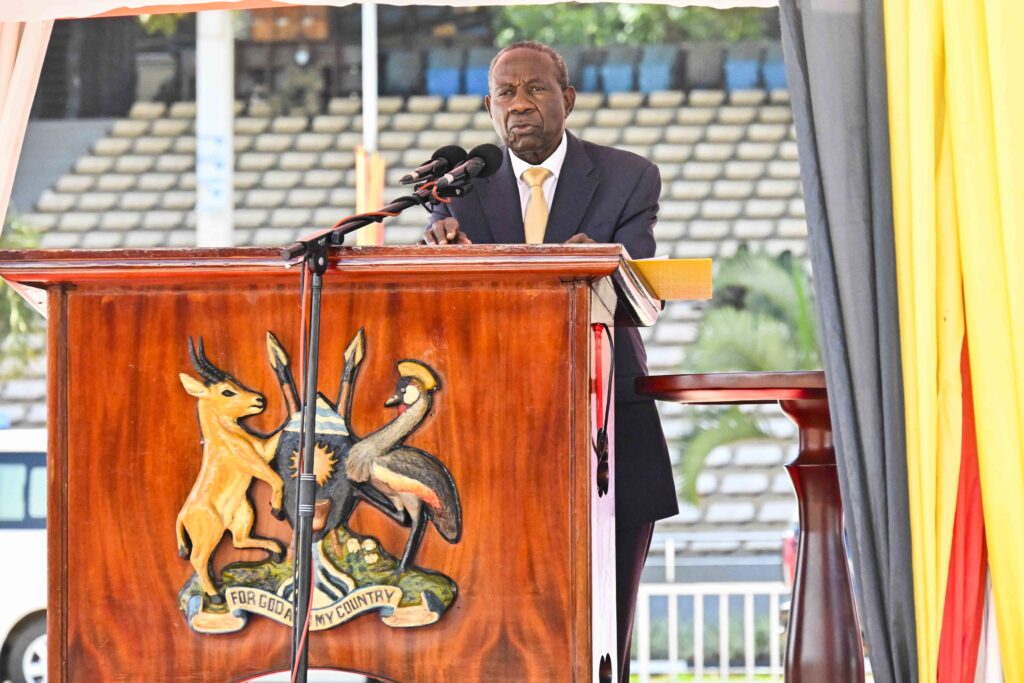
Drawing on Uganda’s history of civic engagement, President Museveni called upon the people to be vigilant, insisting that the masses are the true whistle-blowers in the fight against corruption.
“It is because we have a reliable source for kurega (whistleblowing). These are the people, the victims of the corruption.”
He further outlined the key drivers of Uganda’s transformation, crediting the NRA/UPDF, the wealth creators in agriculture, manufacturing, services and ICT, government scientists, and patriotic members of the political class who support the NRM programs.
“The big changes that are happening in Uganda, are by the following actors: the NRA/UPDF that liberated the country and has been ensuring peace ever since; the wealth creators in the four sectors. the Government scientists that make innovations, and the responsible members of the political class that have been supporting the NRM programs. It is, therefore, not fair for some actors to spoil these great successes,” the President said.
“Some people say that they give bribes because Museveni is always giving the khaki envelope to members of the population. Do not draw water and mud; do not mix up issues. The brown envelopes I give are part of the ancient traditions here. It is called okurongoora. It is the King who does that to the singers, or wrestlers, etc. President is the modern ‘King’. You are not ‘Kings’. I have a budget for that. I do not sell my cows to get money to kurongoora singers.”
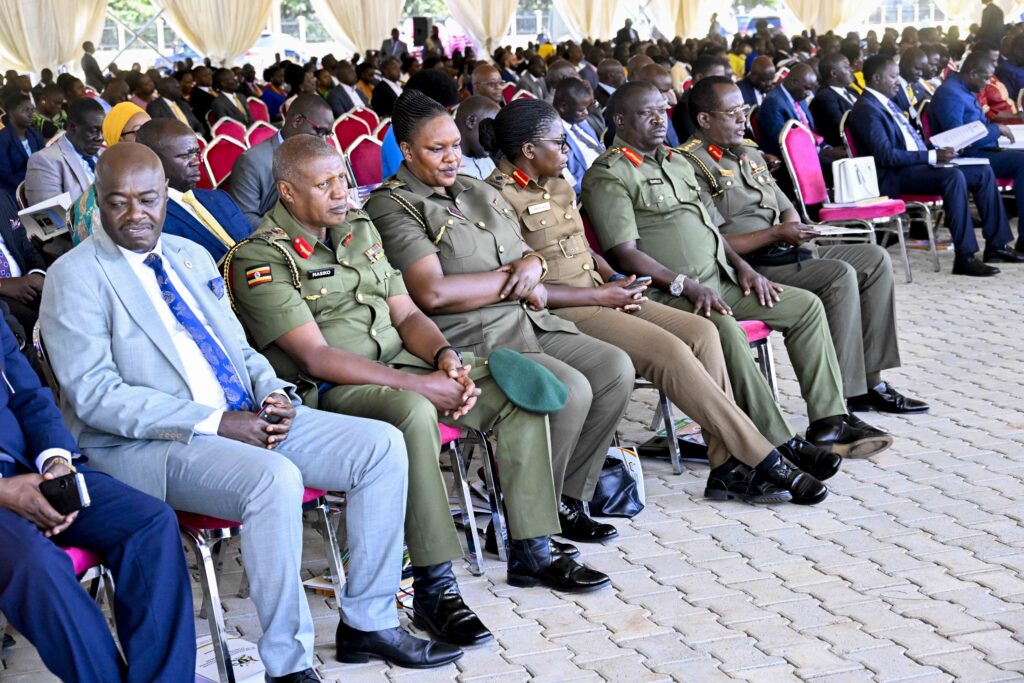
He condemned the exploitative culture of individual fundraising pushed by politicians, describing it as unsustainable and misleading.
“Fundraising was and is premature. The healthy fundraising is okusonda, whereby you make small equal contributions but by many contributors,” he said.
Recalling a humble past, President Museveni invoked a childhood example from his father, Mzee Kaguta, saying, “In the 1950s, Mzee Kaguta sometimes would participate in kusondera (contribute) for enjogga (a potful) of rwaagwa (banana alcohol). At that time, enjogga was 5 shillings. Five people would contribute Shs 1 each.”
He criticized politicians who create false impressions of wealth and burden themselves with unsustainable donations.
“With the rampant fundraising, the MP carries the whole burden. It is really extortion, but it was instigated by the MPs who created the impression that they had the type of money which they did not have,” the President noted.
Challenging the culture of silent approval of suspicious wealth, President Museveni urged elders and church leaders to question the source of lavish donations from young politicians.
“Even the church leaders and other elders should ask those young mistake makers: ‘Naye mwana wange, esente zino zonna, ozigyawa?’ That is what a responsible parent should ask omwana (son or daughter) or omuzukulu (grandchild) if he/she sees him or her throwing around money,” he said.
The President concluded with a firm moral warning: “The responsible parents do not accept stolen gifts from their children.”
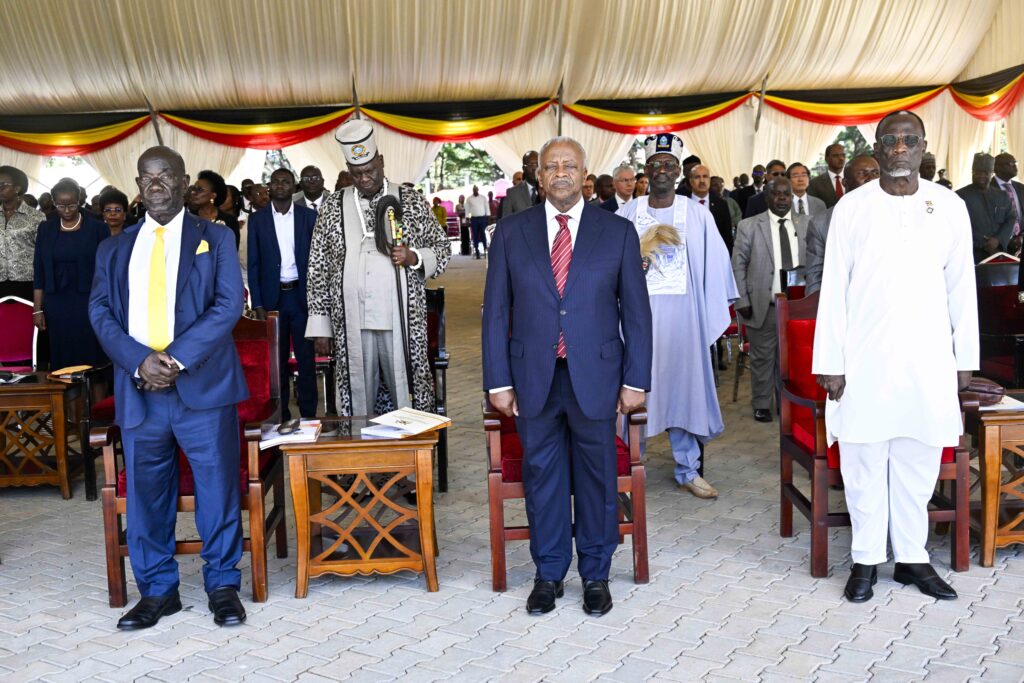
While presenting the budget, Hon. Kasaija stated that Uganda’s economy is no longer defined by fragility, but by resilience and stability, saying that this has attracted investors and fueled sustained growth.
“Uganda’s economy has fully recovered from previous global, regional, and domestic shocks and is firmly on a path of transformation. We expect to grow by 6.4 percent this coming financial year,” the minister declared.
Hon. Kasaija attributed this economic strength to Uganda’s sound fiscal policies, targeted infrastructure investments, improved access to affordable credit, and strong private sector development, all of which have helped reduce the cost of doing business across the country.
Tracing Uganda’s economic journey since 2010, the Minister highlighted the government’s long-term strategy anchored in patriotism, Pan-Africanism, democracy, and socio-economic transformation—the four key principles that continue to guide Uganda’s development.
“The early years of the NRM government were focused on restoring peace, stabilizing a broken economy, and addressing extreme poverty. Today, we are firmly in the phase of socio-economic transformation, “Hon. Kasaija explained.
“For the first time, Uganda also met the UN criteria for graduation from the least developed country status in March 2024. This achievement reflects our commitment to inclusive development,” he said.
He noted that Education and health remain top priorities, with Shs 11.4 trillion allocated under the Human Capital Development Program, noting that funds will support teacher salary enhancements, classroom construction, digital learning infrastructure, and reforms in the lower secondary curriculum.
“We are also investing in youth skilling through the Presidential Industrial Hubs and the Skilling Uganda Program, to boost employability and productivity,” Hon. Kasaija added.
He further highlighted that Debt servicing takes a significant share of the budget, with Shs 28.5 trillion allocated, Shs 11.3 trillion for interest payments, shs 4.9 trillion for external debt, and shs 1.4 trillion for clearing domestic arrears.
The Minister clarified that the budget has been financed by Shs 37.2 trillion in domestic revenue, Shs 11.3 trillion in domestic borrowing, Shs 11.3 trillion from external project support, and Shs 10 trillion for domestic debt refinancing.
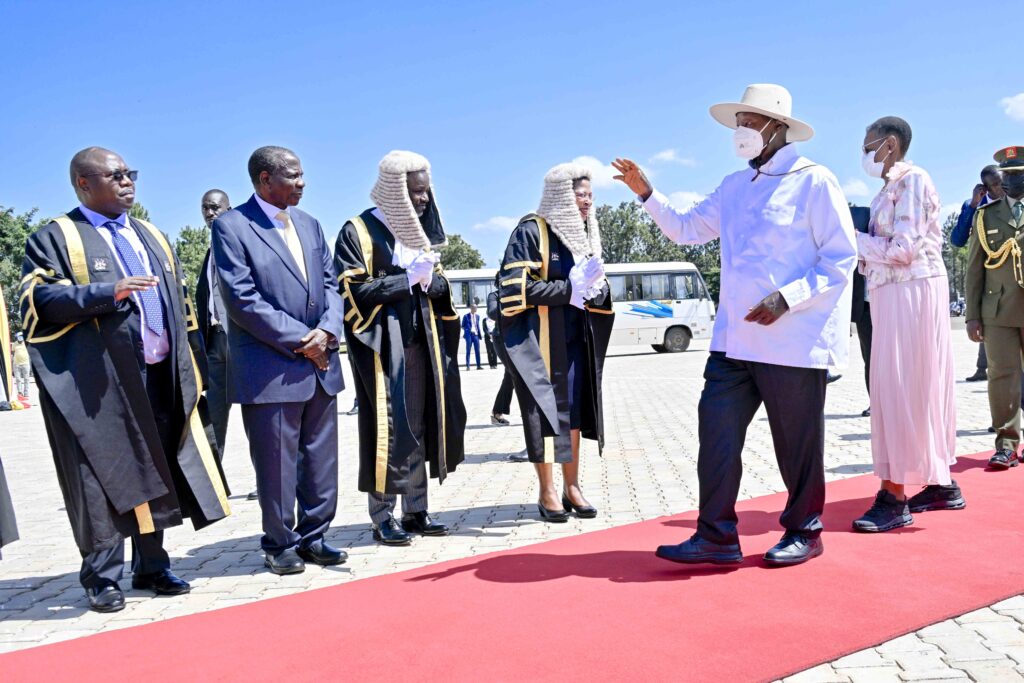
The minister mentioned that Transport infrastructure has been allocated Shs 6.8 trillion, with Shs 2.2 trillion going to roads and bridges and Shs1.17 trillion earmarked for the Standard Gauge Railway, noting that it will enhance regional equity.
“We shall prioritise road projects as highlighted by His Excellency the President, including: Puranga-Acholibur (65km), Kampala-Gayaza-Kalagi (33km), Lugazi-Kiyindi (28km), Kabwohe-Nyakabirizi (92.2km), Busega-Mpigi (10kms),” he said.
“On the railway, the government has completed the refurbishment and commissioning of the Mukono-Kampala Metre Gauge Railway. In addition, 375 kilometres of the Tororo-Gulu line are being rehabilitated and will be completed by February 2026.”
To drive household incomes and economic inclusion, key wealth creation programs remain central, he said that the Parish Development Model will receive Shs 1.075 trillion, while Emyooga has been allocated shs 100 billion, and the informal sector Shs 3 billion.
“The Uganda Development Bank will receive Shs 414 billion to support agro-industrial and manufacturing ventures, ensuring access to affordable capital for local enterprises,” Hon. Kasaija announced.
On inflation, the minister said that it is under control.
“Despite global uncertainties, the Uganda shilling has been among the few most stable currencies in Africa.”
The event was also attended by the Vice President, H.E Jessica Alupo, His Lordship Alfonse Owiny Dollo, the Chief Justice, Rt. Hon. Thomas Tayebwa, the Deputy Speaker of Parliament, Members of parliament, members of the Diplomatic Corps, among others.